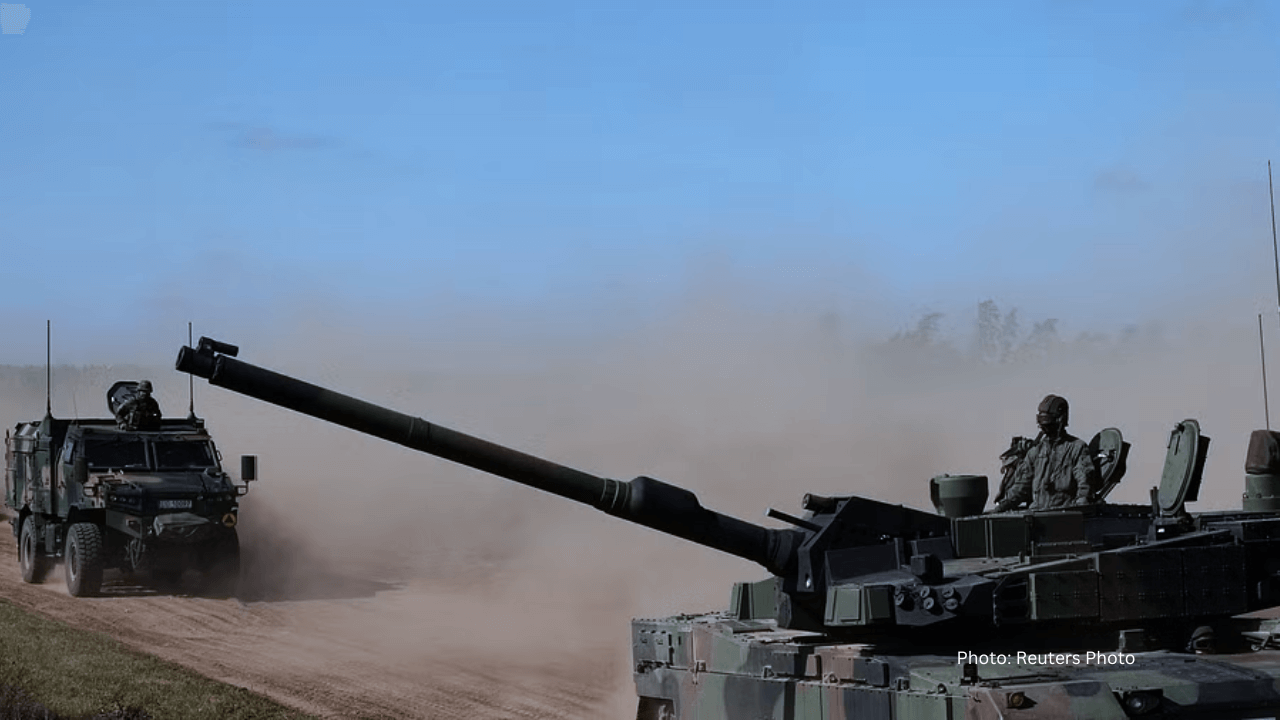The Strategic Implications of China-Belarus Military Exercises Near NATO's Border
Roman Uddin | 21 July 2024
The recent joint military exercises between China and Belarus near the Polish border mark a significant moment in global geopolitics, underscoring the increasingly assertive posture of authoritarian regimes in challenging the Western-led international order. These drills, held just as NATO was convening its summit in Washington, are far from coincidental. They symbolize a growing alignment between China and Russia, with Belarus serving as a crucial conduit for this strategic partnership. This development is not merely a regional concern but a potential harbinger of a broader, more complex geopolitical confrontation.
China's participation in military exercises on European soil, particularly so close to NATO's borders, is unprecedented and signals Beijing's willingness to project power far beyond its traditional spheres of influence in Asia. This move can be interpreted as a direct response to NATO's increasing engagement with the Asia-Pacific region, where the alliance has been deepening ties with democracies like Japan, South Korea, and Australia. Beijing's actions suggest a strategic calculus aimed at countering NATO's influence both in Europe and Asia, thereby complicating the security dynamics across two critical theaters.
Belarus, under President Alexander Lukashenko, has become increasingly isolated from the West due to its authoritarian governance and close ties with Moscow. The country's recent accession to the Shanghai Cooperation Organization (SCO), a security bloc dominated by China and Russia, further cements its role as a frontline state in the emerging Eurasian alliance. For Lukashenko, allowing Chinese troops to operate so close to NATO territory serves multiple purposes: it reinforces his regime's security through external alliances, signals his defiance against Western sanctions, and strengthens his bargaining position with Moscow by demonstrating his capacity for independent foreign policy maneuvers.
However, this exercise is not merely a show of force; it carries deeper strategic implications. The presence of Chinese forces in Belarus could pave the way for more permanent military cooperation between the two countries, including the possibility of Chinese military bases or facilities on Belarusian soil. Such developments would significantly alter the security landscape in Eastern Europe, potentially drawing China into the already tense standoff between NATO and Russia. Moreover, this exercise may serve as a testing ground for integrating Chinese and Russian military doctrines, particularly if future drills involve trilateral cooperation with Moscow.
For NATO, these developments are deeply concerning. The alliance has long been focused on countering Russian aggression, particularly since the annexation of Crimea in 2014 and the ongoing war in Ukraine. The introduction of Chinese military power into this volatile mix raises the stakes considerably. NATO now faces the prospect of a coordinated Sino-Russian-Belarusian front on its eastern flank, which could stretch its resources and complicate its strategic planning. This situation also underscores the growing global nature of security threats, where actions in one region can have far-reaching implications for another.
China's involvement in Belarus is also a clear signal that Beijing is willing to engage in power projection in areas far removed from its immediate neighborhood. This shift reflects China's broader ambitions to be recognized as a global superpower capable of influencing outcomes in multiple regions simultaneously. By participating in these exercises, China is not only supporting Russia and Belarus but also testing the resolve of NATO and its member states. It challenges the Western alliance to respond to this new reality, where the traditional lines of confrontation are increasingly blurred.
The Western response to these developments will be crucial in shaping the future of global security. NATO must now consider how to address the dual challenges posed by Russian and Chinese military cooperation, particularly in regions that are vital to its collective defense. Strengthening ties with non-NATO allies in the Asia-Pacific, enhancing military readiness on the eastern flank, and increasing intelligence-sharing are all potential steps that the alliance could take. Additionally, there may be a need for a broader strategic dialogue with China to address these concerns and prevent further escalation.
The joint military exercises between China and Belarus represent a significant escalation in the ongoing geopolitical competition between authoritarian regimes and the Western-led international order. This development not only challenges NATO's security posture in Europe but also signals China's growing ambition to play a more assertive role on the global stage. As these dynamics continue to evolve, the international community must remain vigilant and adaptable, recognizing that the security challenges of the 21st century are increasingly interconnected and global in scope. The actions taken today will have profound implications for the future of international peace and stability.
Roman Uddin is a Research Associate and Youth Outreach Program Coordinator at CGS
Comments
-
02 Sep 2024, 07:17 AM
It is a timely and well-argued examination of a significant moment in global geopolitics, raising important questions about the future of international security and the resilience of the Western-led order. It serves as a valuable contribution to the ongoing discourse on global strategic realignments.
